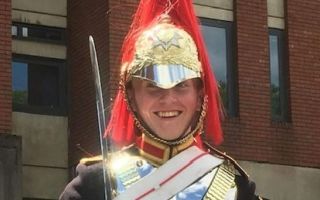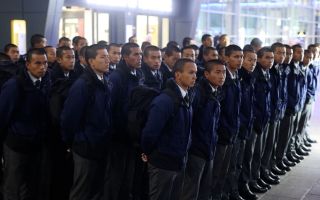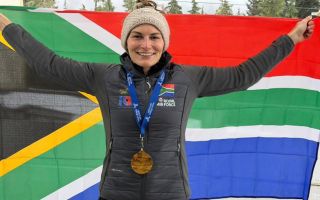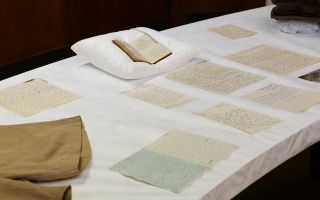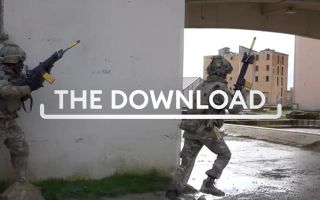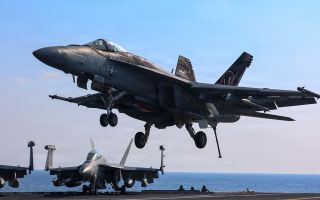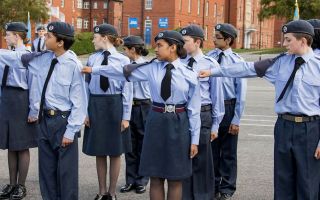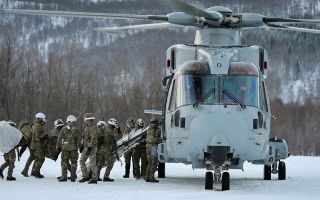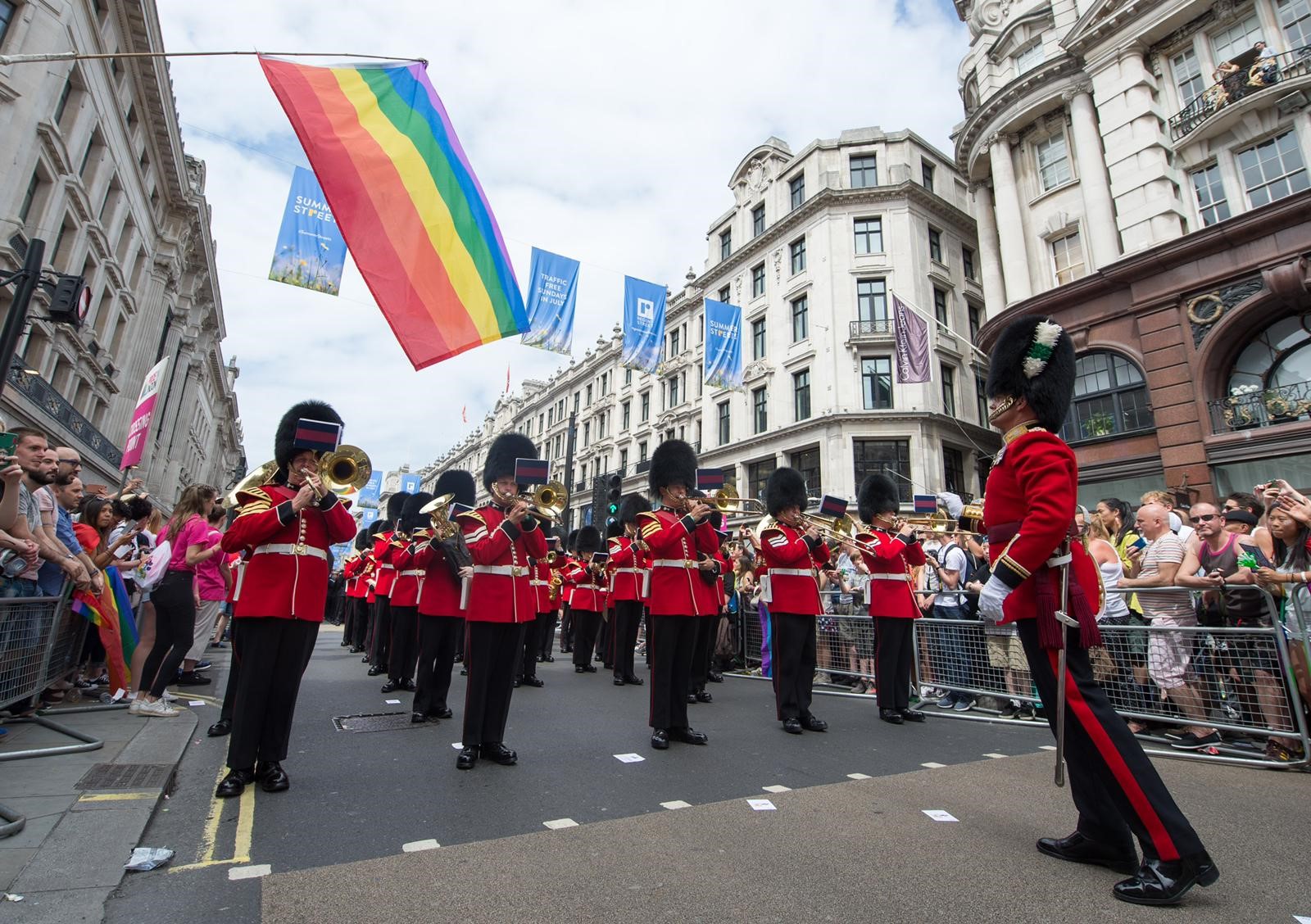
Heard About The Army LGBT+ Network? You Should Have …

The modern army is as concerned about its men and women’s wellbeing as it is about winning the next war.
Part of this has seen the organisation transform – literally – from criminalising lesbian, gay, bisexual and trans personnel a little over twenty years ago to allowing LGBT+ soldiers to march proudly at gay pride events up and down the UK.
What Is The Army LGBT+ Network?
Spearheading that change is the Army LGBT+ Network. But what is it, and why is it important?
BFBS caught up with two of the network’s members, Sgt Alastair Smith-Weston and LCpl Rhona Carse, to discover more about coming out as gay in the military and how the Army LGBT+ Network supports the wider Armed Forces.
LCpl Rhona Carse, 31, The Band Of The Scots Guards
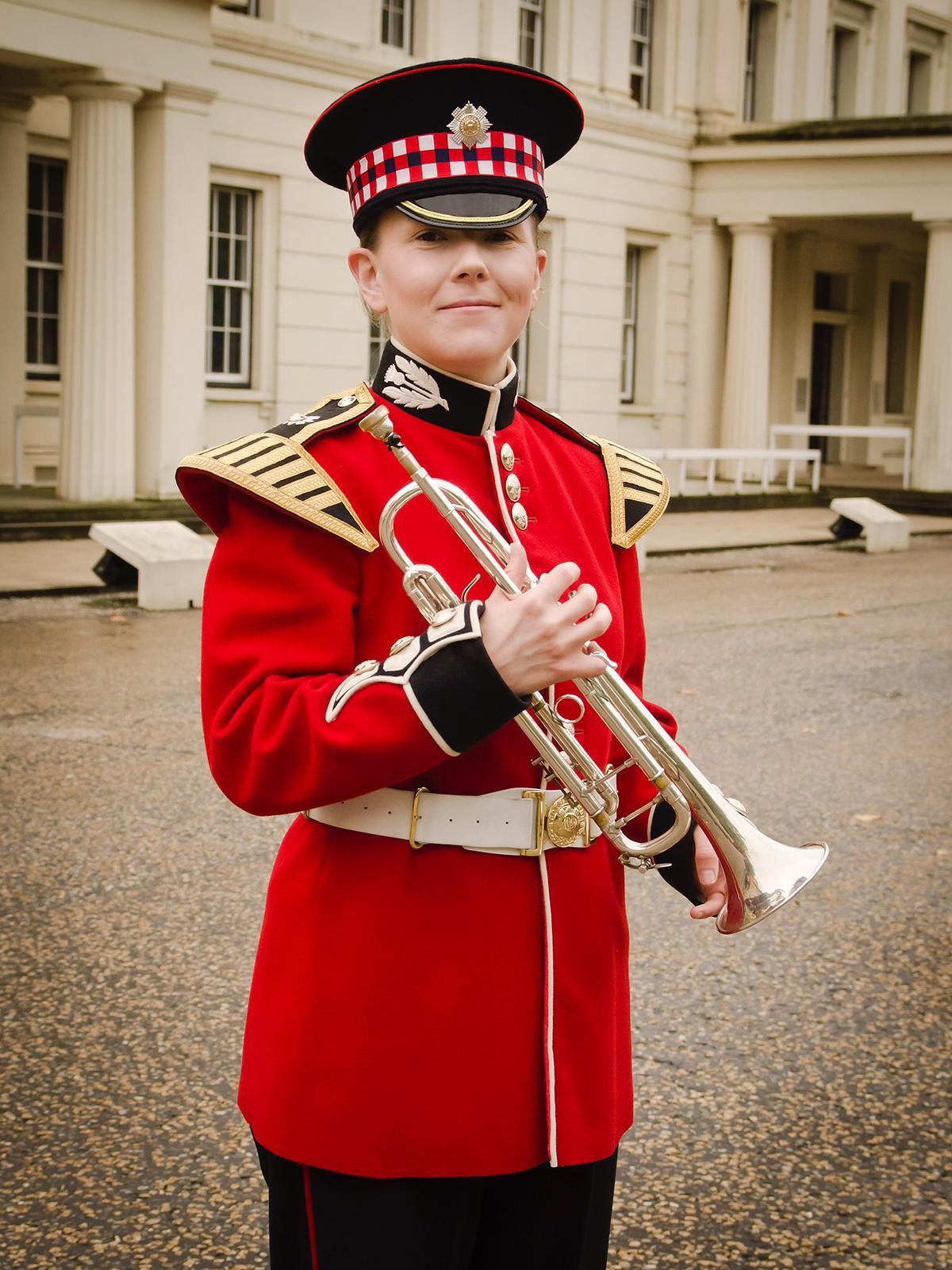
"I am LCpl Rhona Carse, and I am a musician in the Scots Guards. I play trumpet for the band and we do ceremonies like Changing of the Guard and Trooping The Colour.
"The best thing about being a soldier for me is the comradery. There’s a definite dovetail moment where your personal life and your work life combine that I don’t think you have in office jobs.
"We go on tour together and live in each other’s pockets, so you learn to be a lot closer with your colleagues than you would be in other jobs.
"I came out long before I joined the army. I joined quite late, I was 24, and signed up after university. I came out, I guess, in my late teens. I dated women in my later school life, and I dated some men at university. I have never really thought of it as a big deal. I have never had a traumatic landmark coming out story like some people do. It’s just always been a thing about me.
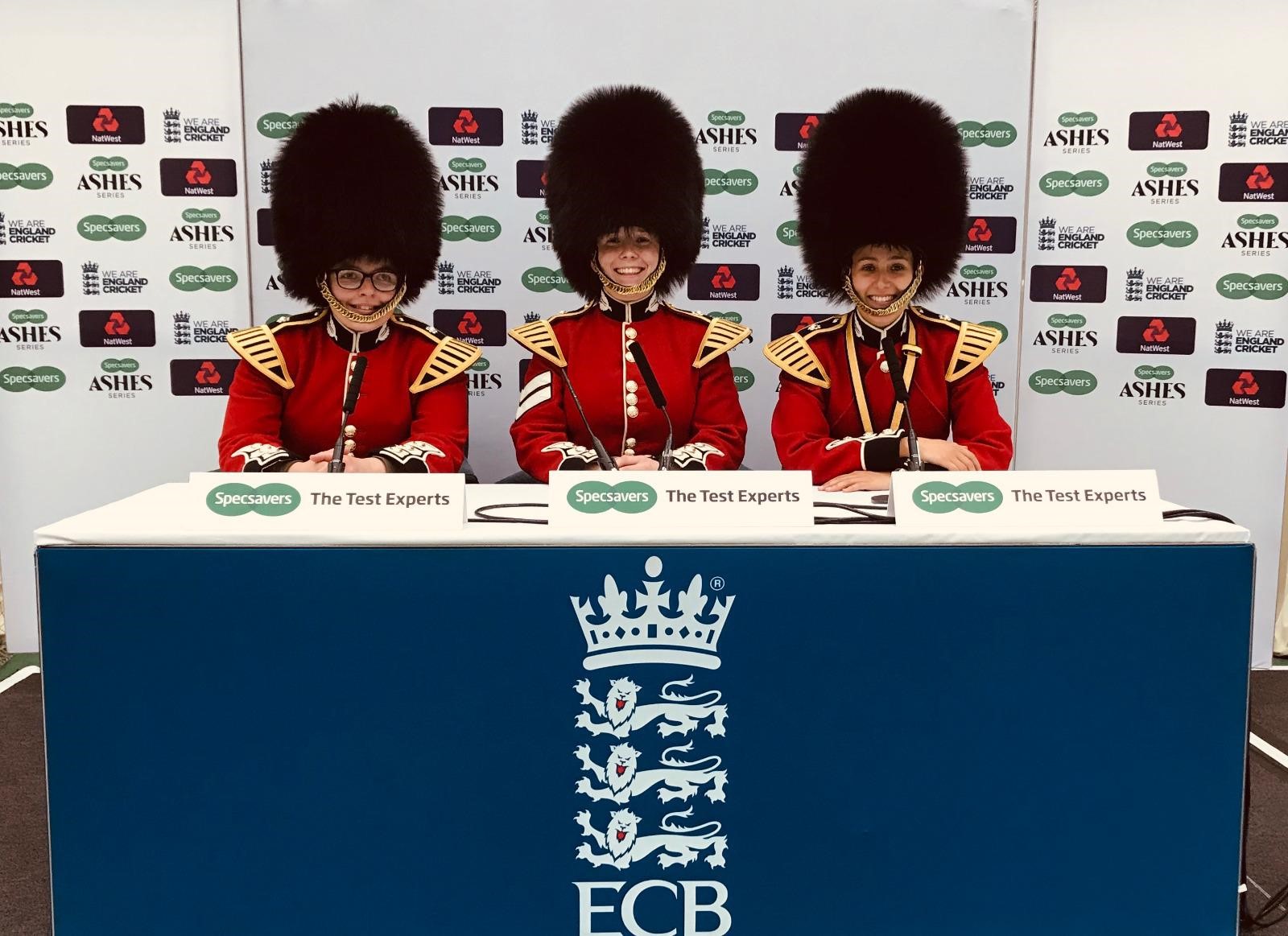
"I have never actively avoided talking about my sexuality. When I say girlfriend or wife to colleagues, or she/her, people sometimes pick up on that. There might be occasionally an “oh” moment, but I have never come across negativity; it’s certainly not hindered me in my career at all.
"Talking about my sexuality really doesn’t phase me at all. Maybe some of that is to do with age -I’m 31 now, so I am quite far down the line. I was married in 2017, so, quite a while now. Coming out to new colleagues or soldiers I meet on courses or whatever doesn’t phase me at all.
"My partner is a client relationship manager for an IT company, so the polar opposite to what I do. But she has gained a lot of comradery, friendship and networking through what I do. She’s quite familiar with the partners of friends we have in my work, and we do quite a lot as colleagues. The military has been an asset in both our social lives I think.
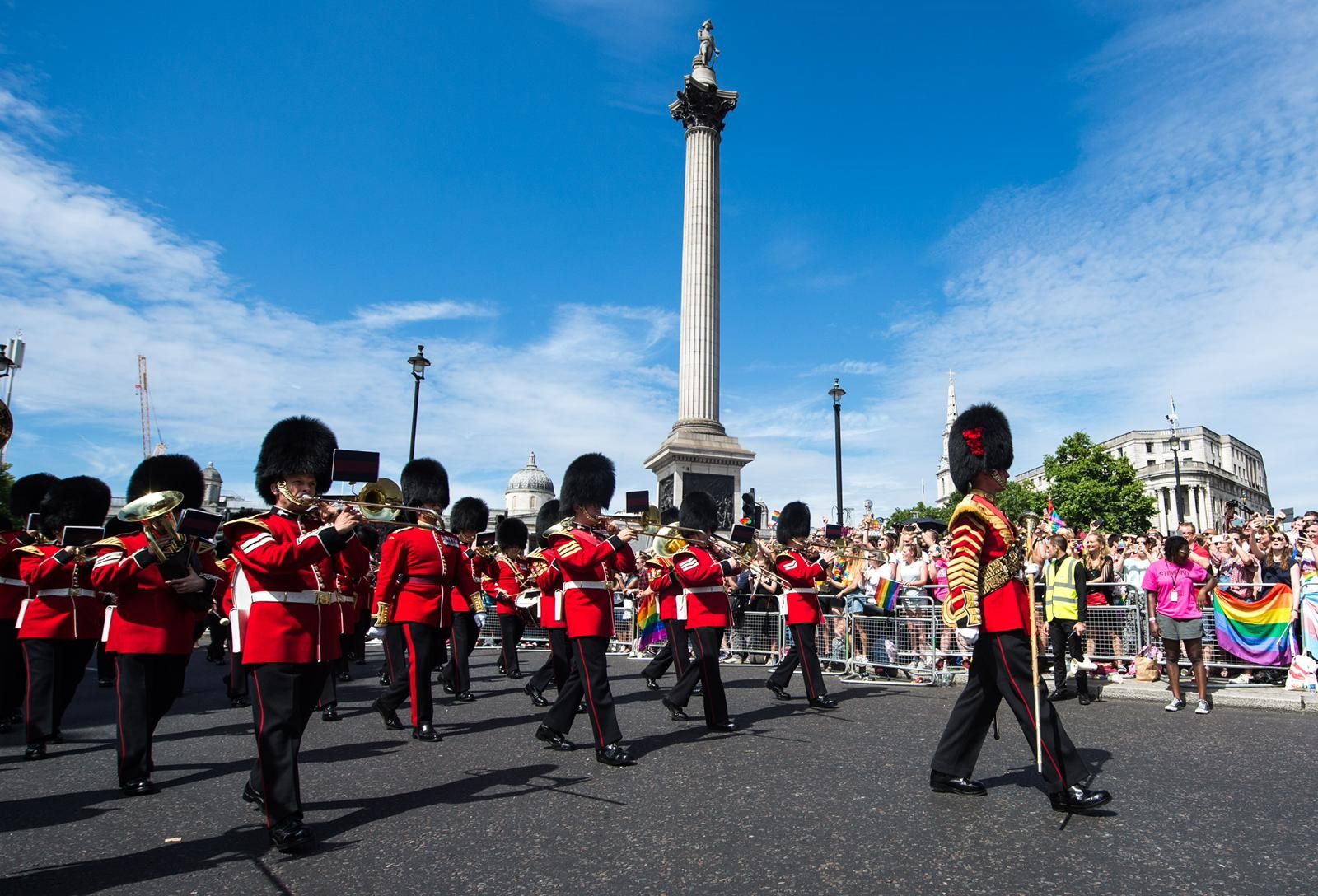
"I first got involved in the Army LGBT+ Network in 2017 after attending one of their conferences at Sandhurst. I got to know some of the people there, and so began actively volunteering to do some of the networking events, webinars, media engagements and eventually gained the trust of some of the people responsible for the network … and so I went for the job of Vice Chair of Media and Comms. So, that was last November and I have been doing that for about six months now.
"In terms of the change I have seen since I joined the army, it is difficult for me to remark on it because, like I said, I have never been met with negativity. That’s not to say that it hasn’t changed for the positive, I am sure for lots of people it has, but I think my experience has been, from start to finish, positive.
"The one thing the army has got, that is not always the case in other workplaces, is that the policy is always on our side. We get the policy right; the culture catches up in time.
"My one bit of advice to any soldier thinking of coming out is, that if you don’t feel comfortable coming out to your unit as a whole, I would start by coming out to an individual that you trust. That could be a close friend. You will probably find that once that’s done you have a sense of relief, and you can then apply that logic to bigger audiences -as and when you feel comfortable. I think that every time you do it there’s probably going to be a weight off your soldiers. And when you do find that place – telling everybody that you meet – I think as a soldier you perform better."
Sgt Alastair Smith-Weston, 2nd Battalion The Princess of Wales’s Royal Regiment
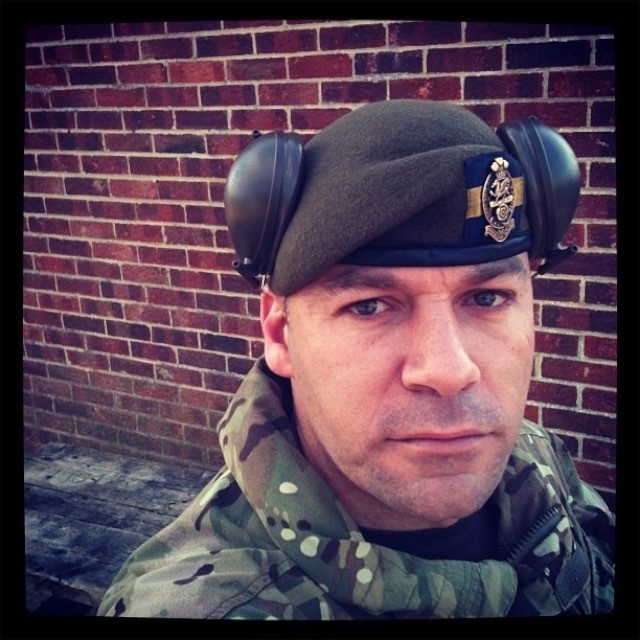
"My name is Sgt Alastair Smith-Weston, I am a member of the 2nd Battalion, The Princess of Wales’s Royal Regiment, one of the specialised infantry battalions, and I currently work as a military instructor just north of London.
"The best thing about being a soldier is the appetite for intermingling of diversity. It’s the ability to encounter individuals and people who become close friends, and brothers and sisters, who you would potentially never have the opportunity to meet outside the Armed Forces.
"I joined the army in 1998, which was a little before the lifting of the ban on LGBT soldiers serving in the military. In all honesty, in my early days, I was a young individual and I hadn’t really discovered myself. I was more interested in getting into the army and having the fun that it appeared a lot of the soldiers had. I wasn’t aware of the background around the death throes of the legislation as it was in the late 90s, but I have a vague recollection of being called onto a muster parade on January 12, 2000, and being told that lesbian, gay and bisexual people were now allowed to serve in the Armed Forces. That was it. Done. It took a little bit longer for attitudes to change, that’s always going to be the case; a lot of people I served with were very set in their ways.
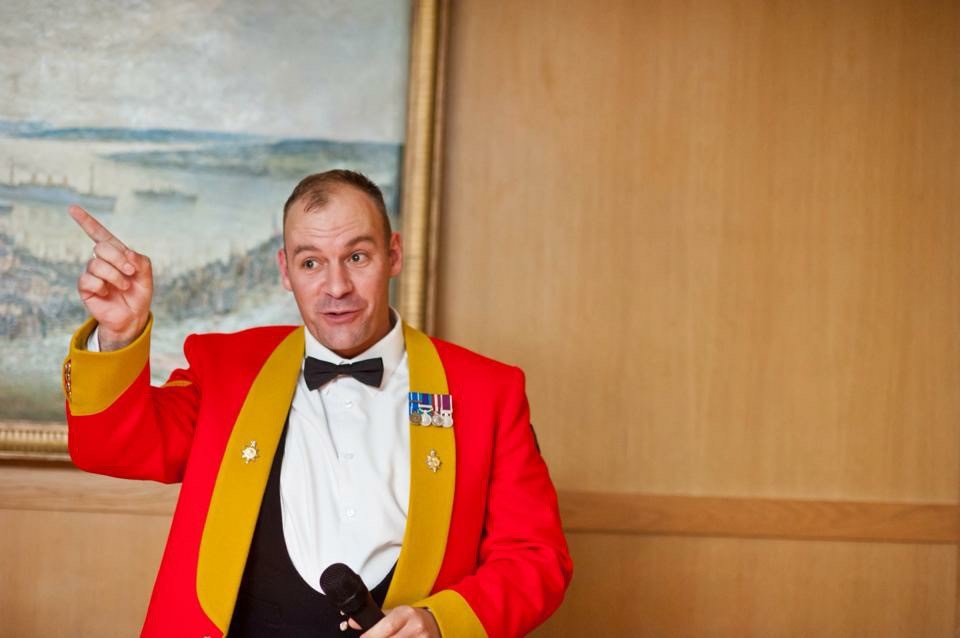
"For me, it felt like a very slow shift attitude-wise, but, it seemed to pick up pace around the mid-noughties, and when that happened, it happened very quickly.
"In my later career, I have had the chance to work with men and women who were involved in the campaign to have the law changes in 2000. It has been awe-inspiring to meet and work with those people.
"I came out in 2011 at a Corporal’s Mess function. It was a typical Corporal’s Mess function, we started drinking very early on in the day and the expectation to drink until nobody can drink any more. And somebody asked me the question – whispers had been going around for a while – and somebody had the courage to come up and ask me, “look, are you gay?” and at the time, probably a little bit alcohol-induced, I turned around said yes I am.
"The initial feeling was a little bit of fear, almost like a flight or fight. When I told the individual I was, they didn’t really react, they went off and continued chatting with friends, but I noticed whispers were going around the room. And I did think to myself – “ooh, what’s going to happen here?” So I sat down on a barstool and two of the biggest, probably most aggressive Corporals in the Mess made their way over to me.
"I thought this was probably going to end in one of two ways: a bit of a scrap, or a bit of an argument. And so, I prepared myself for the worst – but they actually both shook my hand.
"That gave me the opportunity to continue with my career where I wasn’t 50% in the job and 50% trying to bat off rumours. Mentally, I became a better soldier. It gave me the opportunity to focus solely on being a soldier.
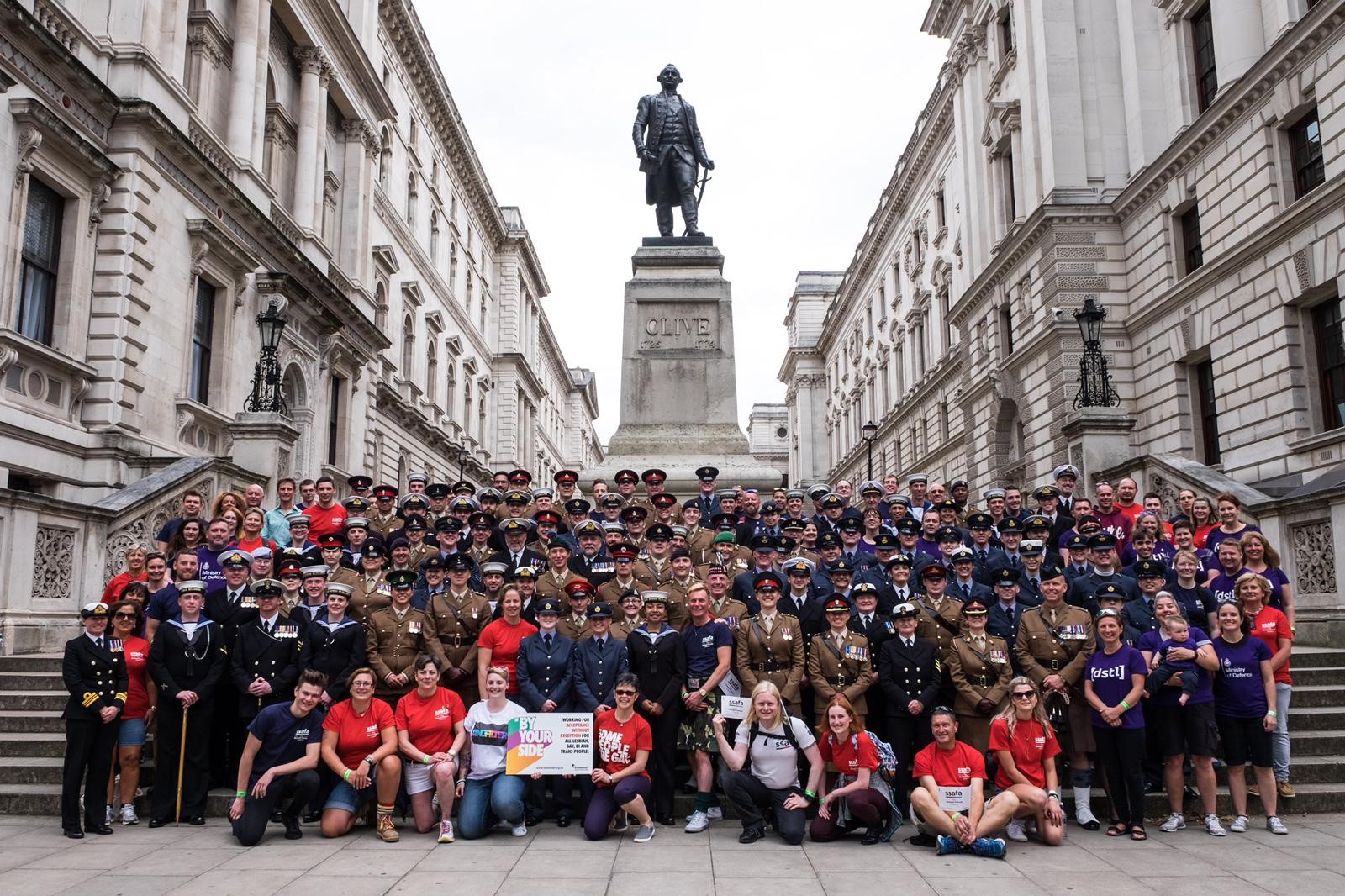
"The role of the Army LGBT+ Network is there to advise senior staff, and to mentor and support LGBT+ members of the Armed Forces. We are points of reference with a wealth of expertise.
"We come from all cap badges and all rank structures within the army. The highest member is a full colonel, right down to the soldiers who are still in training. We have a wealth of background, and a wealth of knowledge. We offer that to individuals via the network.
"I am currently working in the network as the Diverse Families Lead, as a father of four and a grandfather to three children, I’ve got a wealth of experience not only being an openly gay soldier, but also the parent factor, the gay parent factor, and now as a grandparent. I delve into a lot of policy to do with families, to help and support any service members who fall into any of the diversity categories who are interested in policy. I even go as far as support people – not just the service members themselves – but if they’ve got questions about forces children falling into categories. I also provide support around medical procedures including for those who want to start a family.
"My advice to a recruit reading this who is LGBT+ is to reach out to the network if they have any questions or any fears or if they just want a chat about what life is like for openly LGB or T service members. We have the wealth of experience across the board, but even if we don’t have the advice they need, we can find it for them via our links to the LGBT networks in the Royal Navy or Royal Air Force. We can be an ear to chat to.
"If you are thinking of coming out, firstly, my advice is to come out only when you are ready to do so. We are never ready at the same, so come out when you are ready to. I can say from my personal experience, and from colleagues’ experiences, that a lot of the fears you have about coming out are probably wrong. A lot of people fear that their colleagues will ostracise them, the bonds of a friendship might be altered; but what you will probably find is that they suspected it already, and that coming out will be a lot better for you. Coming out gives you the opportunity to live that full potential in your career."
To find out more about the Army LGBT+ Network, visit its website at armylgbt.org.uk/

